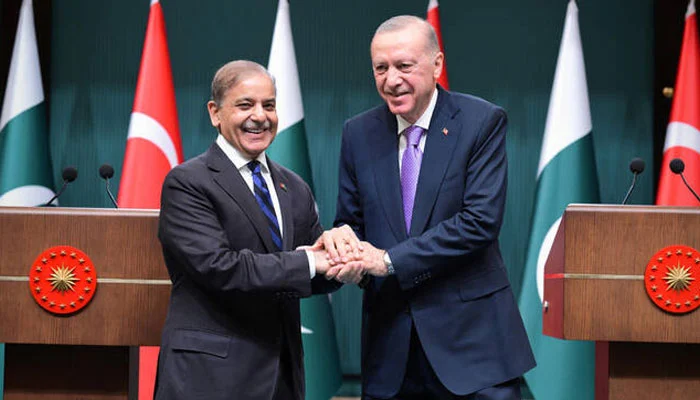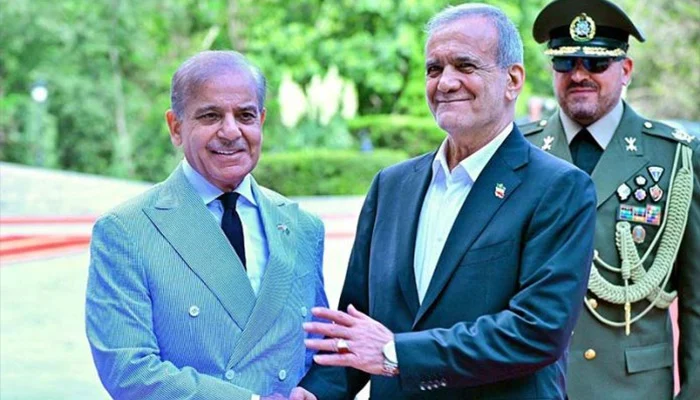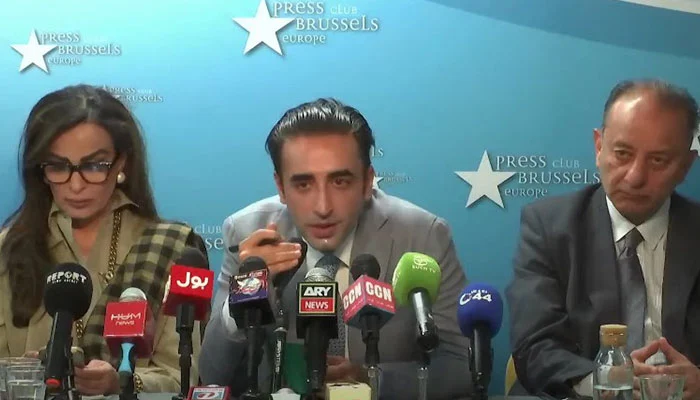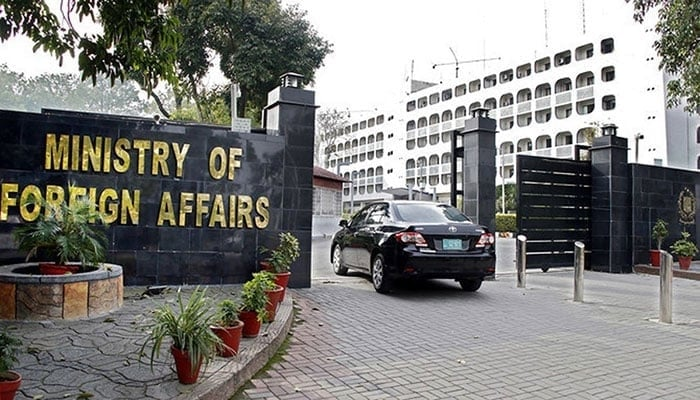ISLAMABAD: Prime Minister Shehbaz Sharif has embarked on a four-nation regional tour, beginning with a visit to Istanbul, Turkey, aimed at strengthening bilateral relations and acknowledging the support extended to Pakistan by friendly countries during the recent tense standoff with India.
Arriving in Istanbul on Sunday evening, PM Shehbaz was warmly received by Turkey’s Minister for National Defence, Yasar Guler, at the airport. The prime minister soon held a high-profile meeting with Turkish President Recep Tayyip Erdogan. According to Fahrettin Altun, Erdogan’s head of communications, the discussions covered bilateral relations, regional and international issues, and the fight against terrorism.
The two leaders expressed strong commitment to expanding cooperation in multiple sectors, including defense, economy, tourism, and culture. President Erdogan reiterated Turkey’s unwavering support for Pakistan, assuring Islamabad that Turkey would stand by Pakistan in both challenging and prosperous times.
Accompanying the prime minister are key members of his delegation, including Deputy Prime Minister and Finance Minister Ishaq Dar, Federal Minister for Information Attaullah Tarar, and Special Assistant to the PM Tariq Fatemi.
Following Turkey, PM Shehbaz is scheduled to visit Azerbaijan, Iran, and Tajikistan. The Prime Minister’s Office released a statement emphasizing that the visits will include wide-ranging discussions with leaders of these nations on bilateral ties as well as critical regional and international issues. This tour offers Pakistan an opportunity to express gratitude for support during the recent military and diplomatic tensions with India.
In Tajikistan, the premier will attend the International Conference on Glaciers on May 29-30, highlighting Pakistan’s commitment to environmental issues.
Meanwhile, Pakistan’s diplomatic engagements are intensifying. Deputy Prime Minister Ishaq Dar recently held a telephone conversation with Azerbaijan’s Foreign Minister Jeyhun Bayramov. They reviewed the full scope of bilateral relations and exchanged views on regional developments, including the upcoming visit of PM Shehbaz to Azerbaijan.
Pakistan’s diplomatic efforts come in the wake of the April 22 Pahalgam attack in Indian-administered Kashmir, where 26 people were killed. India immediately accused Pakistan of involvement without presenting any evidence. Islamabad has categorically denied these claims. This accusation led to heightened cross-border military actions and missile strikes, escalating tensions between the nuclear-armed neighbors.
The situation was eventually de-escalated through international diplomatic interventions, notably by the United States.
In a complementary diplomatic move, Pakistan Peoples Party (PPP) Chairman Bilawal Bhutto has been entrusted by PM Shehbaz to lead a high-level delegation of parliamentarians to global capitals. Their mission is to present Pakistan’s perspective on the conflict and garner international support.
During a recent meeting, PM Shehbaz expressed confidence in Bilawal Bhutto’s leadership, hoping the delegation will effectively convey Pakistan’s narrative on the world stage.
This four-nation tour and diplomatic push underscore Pakistan’s commitment to peaceful regional cooperation, strengthening alliances, and defending its position amid geopolitical challenges.








